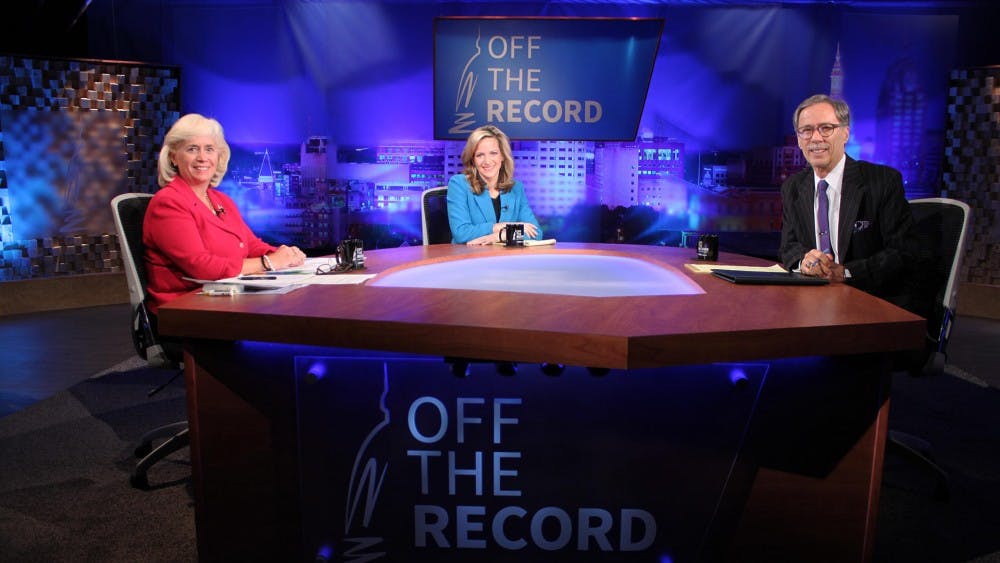Secretary of State candidates include Republican Mary Treder Lang, Democrat Jocelyn Benson and Libertarian Gregory Stempfle. Each have their own tactics for pursuing issues for Michigan residents.
Secretary of State candidates ahead of the midterms

Security
Lang, whose background is in cybersecurity, plans to protect Michigan residents’ information. She said her understanding of cyber attacks and theft will help ensure a fair outcome in the voting process.
Customer service
In an effort to optimize customer service at branch offices, she plans to focus on creating a “comprehensive service plan,” she said. The plan intends to respect customers’ time by limiting the amount of necessary trips to branch offices to once every eight years — to renew license photos.
Stability
Lang said she plans on maintaining the Michigan Secretary of State’s legacy of technological innovation. She wants to provide top-quality services for residents and improve the integrity of the voting process.
Democrat Jocelyn Benson
30-minute guarantee
Benson has campaigned on a platform of preventing customers from being in branch offices for more than a half-hour when they are renewing driver’s licenses, registering vehicles or registering to vote.
Fee freezes
During her time as dean at Wayne State University Law School, Benson froze tuition costs and increased the amount of scholarships issued. She plans to save citizens money if elected by preventing vehicle fee increases.
Protecting voting rights
READ MORE
Benson intends to make voting more accessible by having a “no reason” option for absentee ballots. She also has expressed a desire for Michigan residents to trust the security in the election process.
Ethics and transparency
Ethics and transparency is a priority, Benson said. Michigan was ranked last for public integrity, transparency and ethics by the Center for Public Integrity in 2015.
“I want to bring reforms to Lansing that will push for instant disclosure of all money in the political arena, that will also ensure greater transparency of our elected officials,” she said.
An example is for officials to reveal their private finances and investments. That way, people can better understand officials’ votes for particular policies and identify any conflicts of interests.
Libertarian Gregory Stempfle
Support student media! Please consider donating to The State News and help fund the future of journalism.
As a third-party candidate, Stempfle said elections mainly focus on two political parties — Republican and Democrat. He wants to create more transparency by diminishing “inherent biases in the election law.”
A lack of media attention is often an obstacle Libertarian candidates’ success, he said.
“I think the biggest problem we face is that election law was sort of designed for the purpose of creating and reinforcing a two-party system … and (voters) don’t really feel like they have any genuine options to sort of the lesser of the two major parties,” he said.
Stempfle said voters strategize by determining who they prefer between the Republican and Democratic candidates.
“If the laws were changed to allow for more third party or independent candidate participation, I think you’d see a better turnout,” he said.
Voting rights
His plan to expand voting rights includes allowing residents to fill out an absentee ballot for any reason.
“I’m really pushing that on the campaign trail,” he said. He wants people to receive their ballot early, to allow them to spend time researching candidates and not have to wait in line on Election Day.
He also plans to push for automatic registration, same-day registration and ranked-choice voting.
No-fault auto insurance
Dismantling the state’s no-fault auto insurance laws will make insurance cheaper, “especially for people living in high-crime areas because the insurance rates are based on your ZIP code,” Stempfle said.
Michigan’s insurers are allowed to set insurance rates in certain areas based on ZIP code, credit score and education level, among other non-driving factors. Some critics of no-fault insurance deride the price-setting process as “redlining” for its disproportionate effect on minority and urban neighborhoods.
Election reform
Stempfle wants to adopt ranked-choice voting, where voters can rank their preferences across multiple candidates. He said this tactic will help get rid of the idea that voting third-party is a waste of a vote.
“A lot of people might not want to vote for a third party candidate because they’re afraid that would cause the major party opponent that they liked the least to win ... it would show it as an accurate representation of where voters stand in terms of what issues they want,” he said.
Straight-ticket voting
Stempfle said the implementation of straight-ticket voting would affect third-party candidates due to voters being less likely to evaluate each candidate.
In September, a federal appeals court upheld the constitutionality of a law banning straight-ticket voting passed by a Republican-controlled Legislature in 2016.
The U.S. Supreme Court denied an emergency application to hear the case.
U.S. Taxpayers Party candidate Robert Gale did not respond to an interview request.






